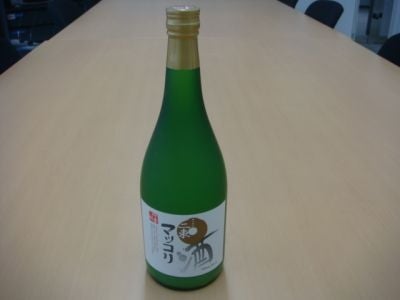For generations a popular tipple in Korea, sales of the traditional alcoholic drink known as "makkori" have taken off in Japan in the last 12 months, fueled by the popularity of Korean culture and cuisine here.
First imported here more than two decades ago, consumption of the rice-based wine was initially limited to Korean residents. In 1999, a mere 611 tons were brought into the country, according to the Korea Agro-Trade Centre Tokyo, but that figure had multiplied by a figure of 10 last year to reach more than 6,150 tons.
"We have discovered that makkori has developed a real following among young women here in Japan," Kim Eui-Jeong told Relaxnews.
"They like it because it is a natural drink that contains properties that are good for the skin and is a healthy alternative to other drinks," he said.
Widespread knowledge of the drink began with the wave of Korean dramas - such as the hit series Winter Sonata, starring heartthrob actor Bae Yong Joon - appearing on Japanese television about 10 years ago, Kim said.
Fermented with lactic acid bacteria, the drink has a rich and sweet flavor, has high concentrations of amino acids and a mere 7 percent alcohol, all of which have appealed to female drinkers, he added.
The boom has meant that makkori can now be purchased in many of the larger supermarkets across Japan, Korean-style restaurants and even in some upmarket bars.
The Tijimaul bar, for example, has done a roaring trade in makkori over the last year.
When it first opened four years ago, in the Shinjuku district of Tokyo, the bar had seven varieties that sold for between Y500 (€4.02) and Y1,000 (€8.04) a glass; now it has 50 different brands.
One of the most famous brands is Edong, which is produced in Gangwon Province, on the east coast of the Korean peninsula, and accounts for around 70 percent of the makkori consumed in Japan.
Some 90 percent of the makkori that is exported from Korea comes to Japan, but trade officials are aiming to raise the profile of the drink and hope its taste and healthy properties will enable it to catch on in other countries as well.
JR

Join our commenting forum
Join thought-provoking conversations, follow other Independent readers and see their replies
Comments